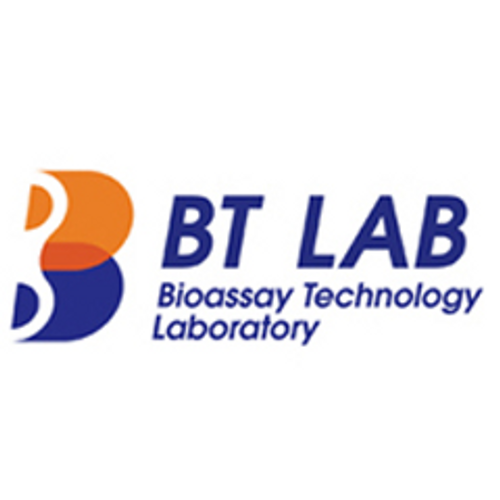Product Description
Pig Cardiac troponin T (cTn-T) ELISA Kit | AE13850PI | Abebio
Species Reactivity: Pig (Sus scrofa; Porcine)
Abbreviation: cTn-T
Alternative Name: CMD2A; CMH7; MGC116817; RCM1; TNNC1; cTnI; familial hypertrophic cardiomyopathy 7|troponin I; cardiac
Application: ELISA
Range: Request Information
Sensitivity: Request Information
Intra-Assay: ≤6.2%
Inter-Assay: ≤7.5%
Recovery: 0, 95
Sample Type: Serum, Plasma, Other biological fluids
Detection Method: Sandwich
Analysis Method : Quantitive
Test Principale: This assay employs a two-site sandwich ELISA to quantitate cTn-T in samples. An antibody specific for cTn-T has been pre-coated onto a microplate. Standards and samples are pipetted into the wells and anycTn-T present is bound by the immobilized antibody. After removing any unbound substances, a biotin-conjugated antibody specific for cTn-T is added to the wells. After washing, Streptavidin conjugated Horseradish Peroxidase (HRP) is added to the wells. Following a wash to remove any unbound avidin-enzyme reagent, a substrate solution is added to the wells and color develops in proportion to the amount of cTn-T bound in the initial step. The color development is stopped and the intensity of the color is measured.
Product Overview: TOB1 encodes a member of the tob/btg1 family of anti-proliferative proteins that have the potential to regulate cell growth. When exogenously expressed, this protein supresses cell growth in tissue culture. The protein undergoes phophorylation by a serine/threonine kinase, 90 kDa ribosomal S6 kinase. Interactions of this protein with the v-erb-b2 erythroblastic leukemia viral oncogene homolog 2 gene product p185 interferes with growth suppression. This protein inhibits T cell proliferation and transcription of cytokines and cyclins. The protein interacts with both mothers against decapentaplegic Drosophila homolog 2 and 4 to enhance their DNA binding activity. This interaction inhibits interleukin 2 transcription in T cells.
Stability: The stability of ELISA kit is determined by the loss rate of activity. The loss rate of this kit is less than 5% within the expiration date under appropriate storage condition. The loss rate was determined by accelerated thermal degradation test. Keep the kit at 37°C for 4 and 7 days, and compare O.D.values of the kit kept at 37°C with that of at recommended temperature. (referring from China Biological Products Standard, which was calculated by the Arrhenius equation. For ELISA kit, 4 days storage at 37°C can be considered as 6 months at 2 - 8°C, which means 7 days at 37°C equaling 12 months at 2 - 8°C) .
 Euro
Euro
 USD
USD
 British Pound
British Pound
 NULL
NULL












